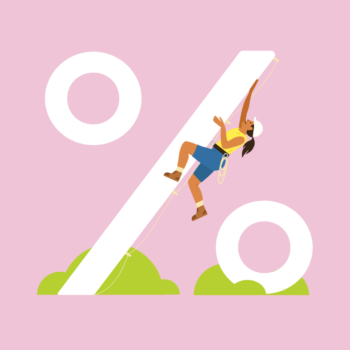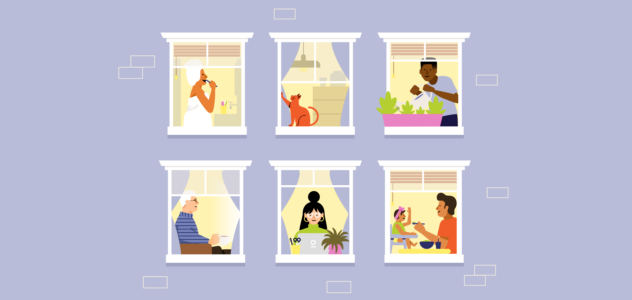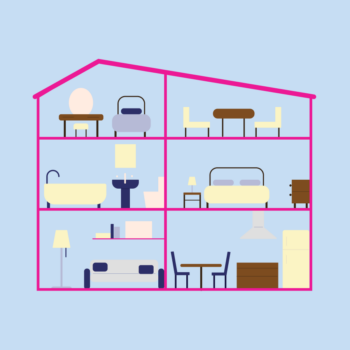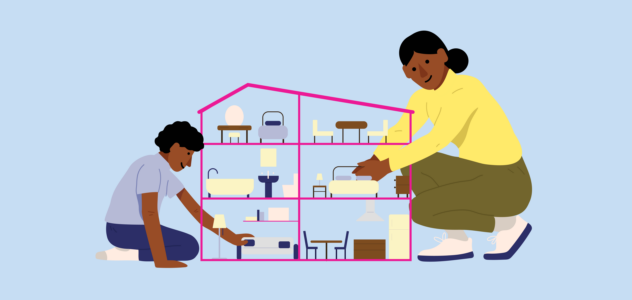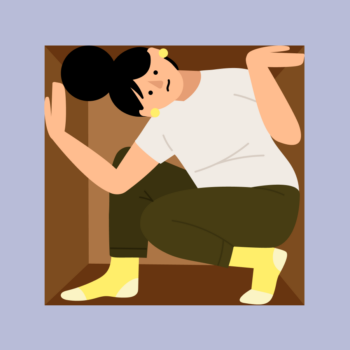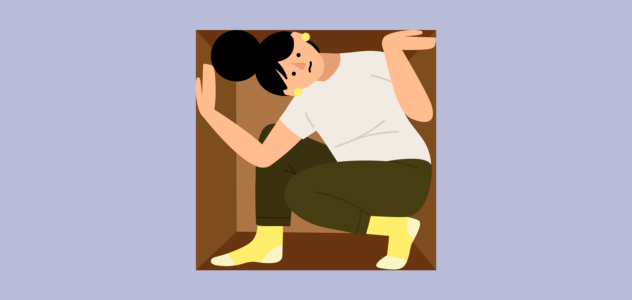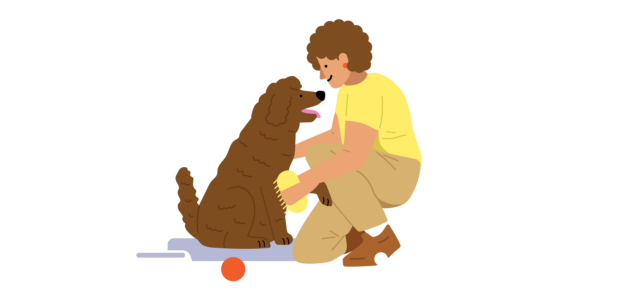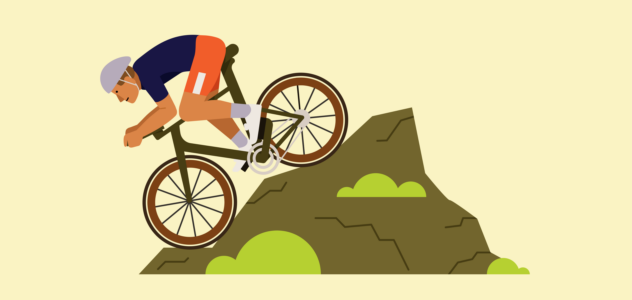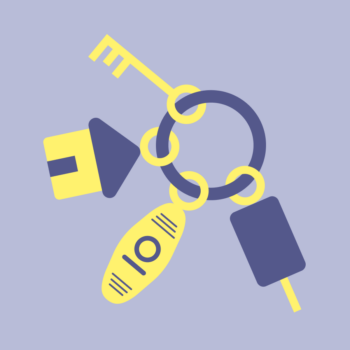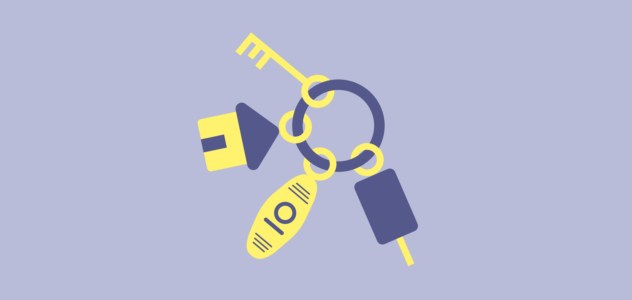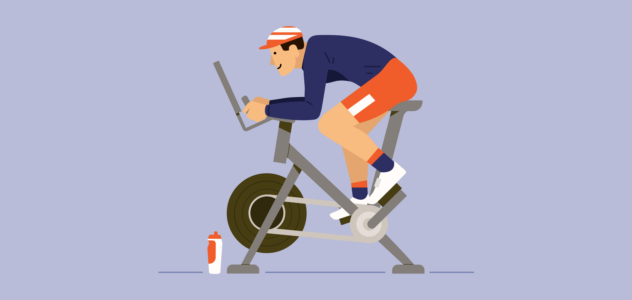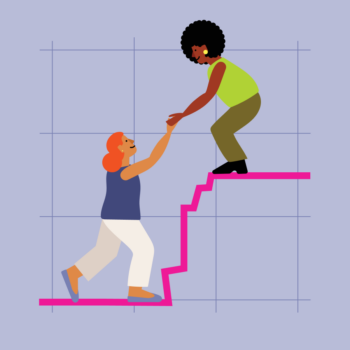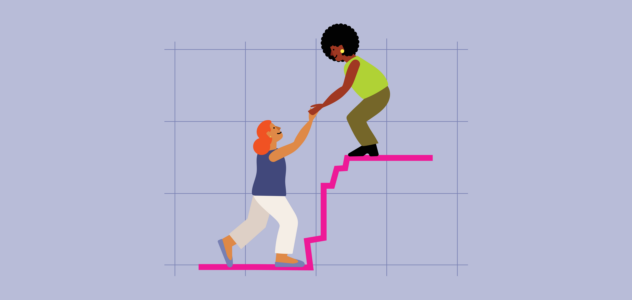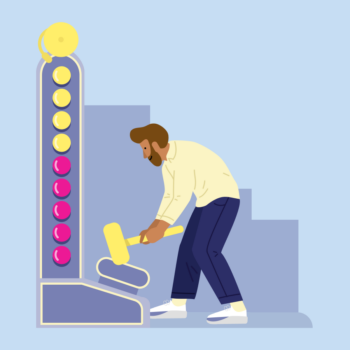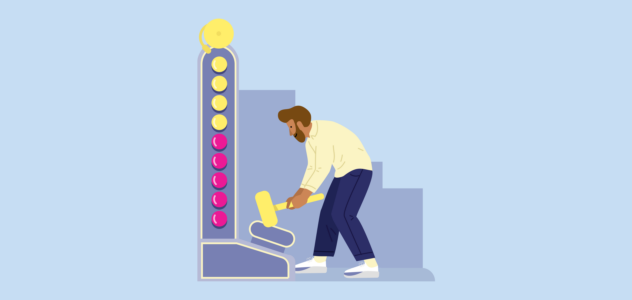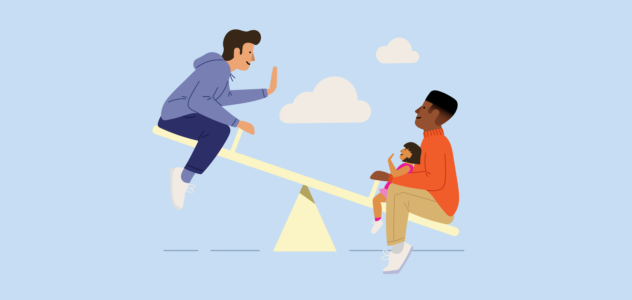Hunting for your first home can feel like two steps forward, one giant step back.
Maybe you had a game plan, a deposit lined up and your heart set on a particular area…
And then in a split second, you catch word that interest rates are rising and start to think Eek! How will this impact how much I can borrow? And what will my monthly repayments be now?
Buuuut before you lose hope and spend your house deposit on a trip to Europe, get familiar with the ins and outs of interest rates. In some cases, rate rises may make room for more opportunities in the property market.
So, what causes interest rates to rise? And what do rising interest rates mean for first home buyers (AKA your borrowing power and monthly repayments)?
This article has all the questions you’ve had on your mind, covered.
What causes interest rates to rise?
Despite how it may seem, interest rates aren’t a roll of the RBA dice. And we’re about to tell you why.
But before that, let’s define a few things.
Firstly, interest rates are the price you pay to borrow money from a lender. And it’s ultimately how lenders make their money.
Secondly, the Reserve Bank of Australia (RBA) is Australia’s central bank. The RBA is the primary decision-maker when it comes to Australia’s monetary policy. More than that, the RBA plays a big role in the stability of our currency, employment rates and economic prosperity. So it’s kind of a big deal.
The RBA sets a thing called the cash rate, which in simple terms, is the benchmark interest rate used for loans between the banks.
So while this rate is set by the RBA, the interest rate on *your* home loan isn’t. It’s set by *your* lender.
But a change in the RBA cash rate can often trickle down, having flow-on effects to mortgage holders. This is why, historically speaking, we’ve often seen banks and lenders change their interest rates after RBA cash rate change announcements.
That being said, this isn’t the only factor that causes interest rates to rise (or fall). Supply, demand, inflation and even the government may have a role to play in interest rates.
In many cases, rising interest rates are influenced by inflation — AKA the increasing price of things over time (remember when a latte cost $3.50?)
Because the thing is, when inflation moves too quickly it can devalue money. So in an attempt to influence that, increasing the cost of borrowing can lead to a greater incentive to save, which means less money to spend on things (like lattes *sigh*).
Long story short: there’s often a method to the madness of rising interest rates.
But what do rising interest rates mean for first home buyers?
There are two key factors for first home buyers to consider: borrowing power and repayments.
Borrowing power
Borrowing power refers to how much money you can borrow based on your financial situation. It considers things like your expenses, income, debts and lifestyle.
Hot tip: You can get an idea of your borrowing power using our borrowing power calculator.
So, how do rate rises affect borrowing power?
Initially, small changes to interest rates may not have a noticeable impact on your borrowing power.
Buuuuut if interest rates continue to rise, it *could* start to have an impact.
The reason for this? Well, lenders like to account for the potential of rising interest costs when they approve your loan (it’s called a serviceability buffer). Kinda like an extra layer of safety, they look at your situation and ask “if interest rates were to rise, would they still be able to pay this loan?”
Real talk: They’re calculating whether you can repay your loan at a higher rate (generally a few percentage points higher) than the rate you’ll actually be starting out on.
This is good news for you. Because if lenders simply approved your loan based on the current market with no wiggle room… Well, you could be in for a rude shock.
So, you can start to see how rising interest rates could impact borrowing power…
Your lender has to account for higher monthly repayments, so as rates rise, the serviceability buffer will typically rise too. And ultimately, this may give you less borrowing power because they’re assessing you at a higher rate to feel confident you can pay it back.
Repayments
In many cases, rising interest rates mean higher repayments (if you’re going with a variable interest rate).
So if you plan on borrowing money, you should factor in higher repayments over the coming months and years.
Let’s look at a quick example.
Say you were an owner-occupier of a 30-year loan of $500,00 with a 2.47% interest rate.
If there were a 0.25% per annum increase in interest rates, that would equate to $792 increase in repayments per year (or if we break it down, $66 extra per month).
This is why chatting to a broker (or home loan expert as we love to call them) about your repayments — both now and in the future — could be a good idea. An experienced home loan expert should walk you through what repayments could look like if rates increased by 0.5%, 1% or higher.
As the saying goes: hope for the best, plan for the worst. You’ve got this (ok, we added that bit).
Ok, what’s the good news?
Feeling a bit uneasy about the whole higher repayments thing? You’re certainly not alone.
But when we look at the bigger picture, slowing down inflation through rising interest rates can actually be a good thing for the economy (and the Aussie dollar).
What’s more, economists have indicated that rising interest rates may mean a cooling of the property market, potentially providing more opportunities for you to buy.
Not only that, higher interest rates may mean your savings can potentially grow at a faster rate.
What do rising interest rates look like in practice?
Let’s take Steph, for example.
She has a pre-approval for a $480,000 loan at a rate of 2.34% p.a. Given this, she can expect monthly repayments of $1,856.89.
However, thanks to her broker, she also ran the numbers on what an interest rate increase to 3.34% p.a. would look like ($2,112.77 per month) and an extreme 5% p.a. would look like ($2,576.74 per month) to ensure she was comfortable with the commitment.
In this case, she was still comfortable with that. But can you see what we mean about planning for the worst?
Got questions? We’ve got answers
Will rising interest rates affect property prices?
It’s hard to give a straight answer because it depends on a whole range of factors. But economists have indicated that when rising interest rates occur, we can often experience a cooling of the property market (property price growth slowing or even prices lowering). This potentially provides more opportunities for you to buy.
Will this affect fixed-rate home loans?
If you’re already on a fully fixed rate, no. In saying that, once your fixed rate expires you should be prepared to adapt to your new interest rate (and ideally chat to a home loan expert before your fixed rate expires). For new loans, it’s best to keep an eye on fixed rates you’re considering, as they can also move during a period when interest rates are changing.
So which is better, fixed or variable home loans?
This is ultimately for you to decide (and there are pros and cons to both options). In a nutshell, a fixed rate gives you more certainty over a predetermined period of time. If interest rates go down, you’ll be stuck paying the same rate (no!) But if they go up, yours will stay the same (yes!) Plus, there’s a whole range of other factors to consider.
To learn more about fixed rates, check out our article that answers should you get a fixed rate mortgage?
Will all lenders increase rates by the same amount?
It’s not easy to predict. But historically, lenders have behaved differently (generally not always the same as the RBA). To keep an eye on what’s currently happening with interest rates, check out our interest rate tracker. We continue to update this list.
Have I missed out on becoming a homeowner?
Not necessarily. Economists have stated that rising interest rates may result in a cooling of the property market — which may present more opportunities for you to buy. In saying that, it’s important you prepare for what’s to come and chat to your broker about what your loan will look like if interest rates continue to increase.
If I get a pre-approval now and rates continue to rise, will I have to get pre-approval again?
Not always. But in some extreme circumstances, you may have to go for pre-approval again. A good home loan expert (we know a few of those) should give you a heads up and take care of this with your lender.
Find out *exactly* what rising interest rates mean for *your* situation
It’s true. As a first home buyer looking to enter the property market, rising interest rates can impact your borrowing power and monthly repayments. But exactly how that will look is unique to your situation.
So before you lose hope, it’s a great time to chat to a mortgage broker about what rising interest rates mean for YOU. In some cases, it may make room for more opportunities in the property market.
Ready to explore your options? Chat with a friendly Finspo expert today for free.



